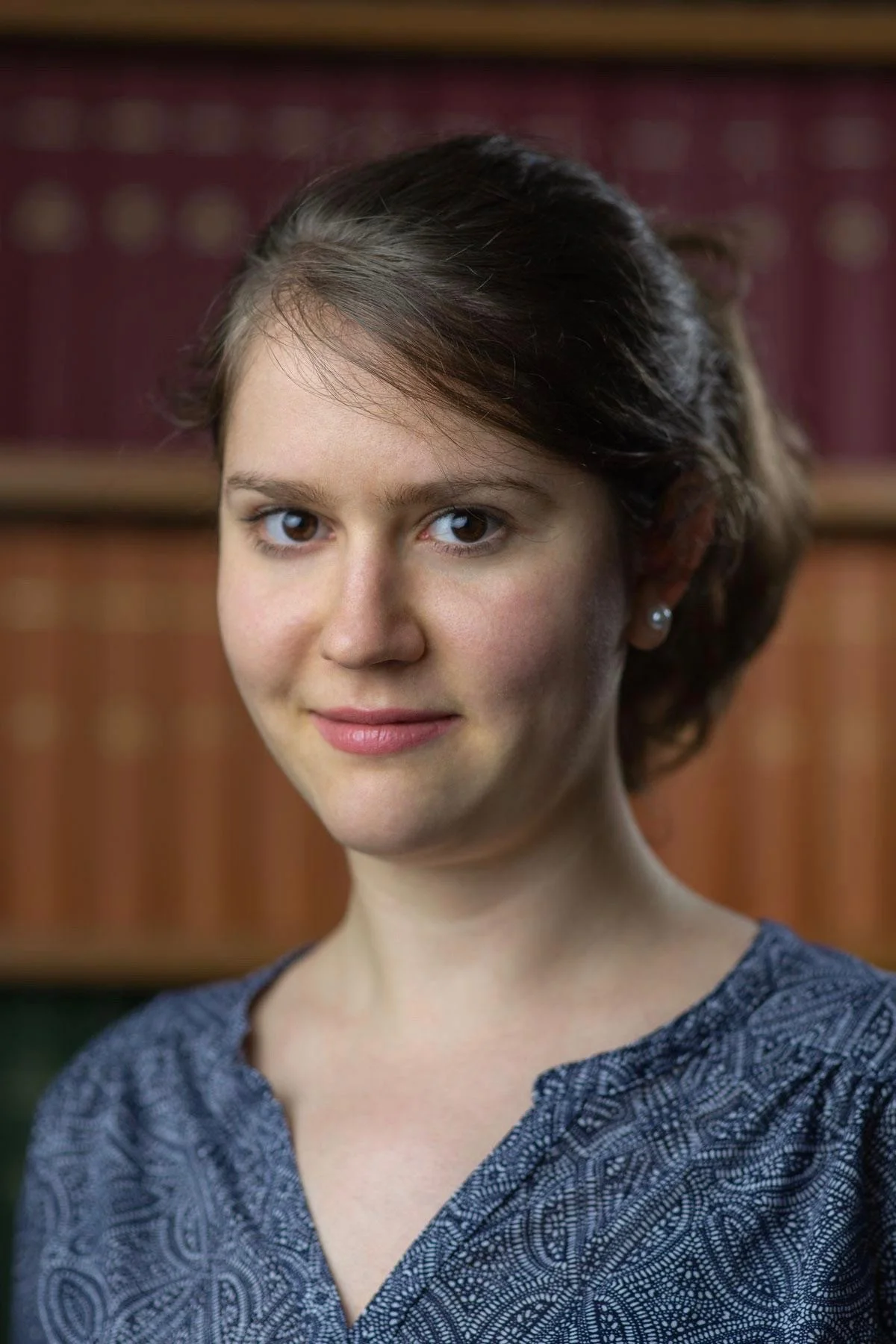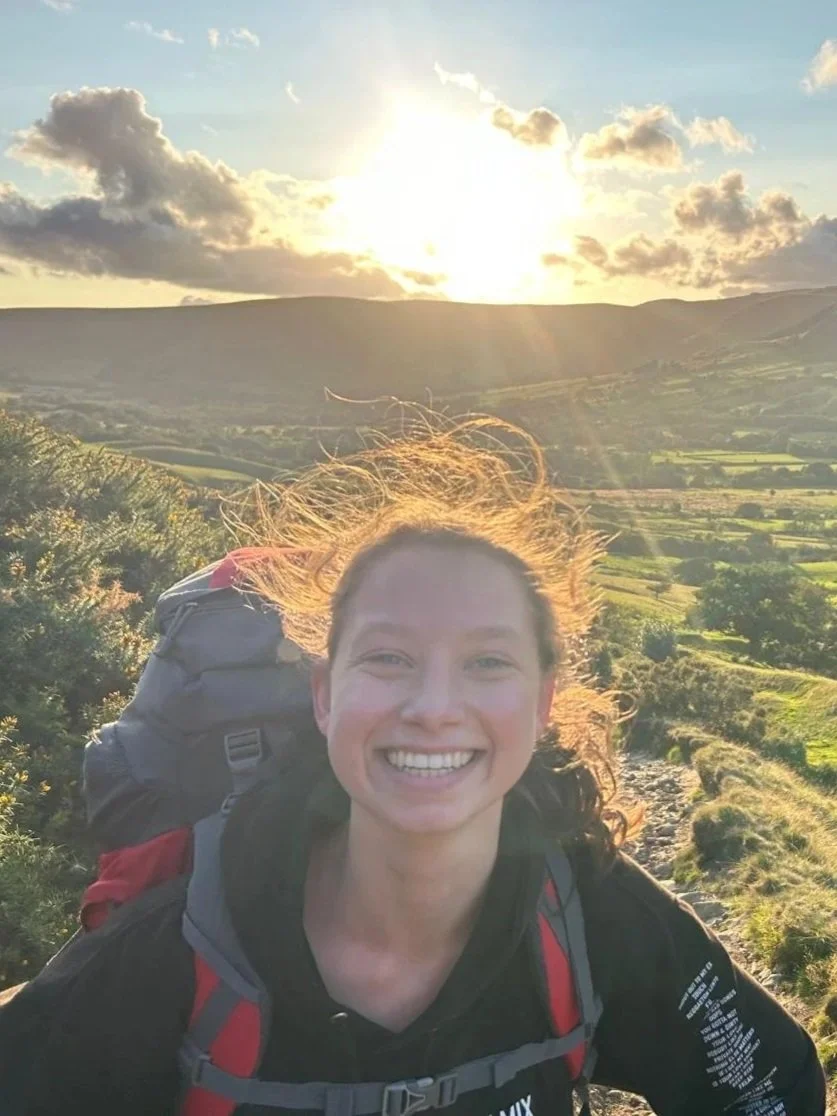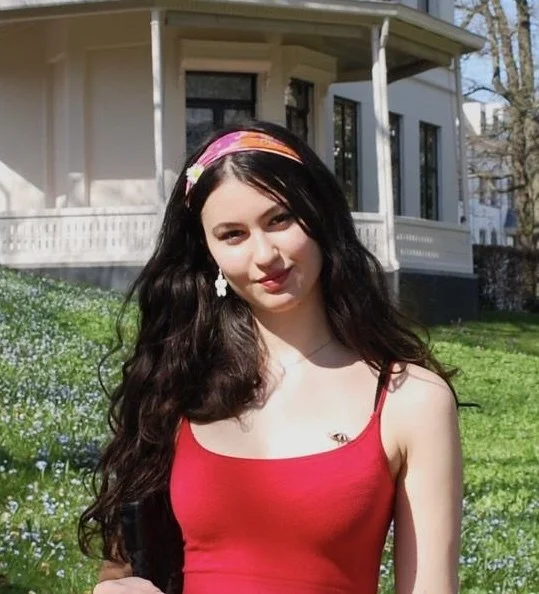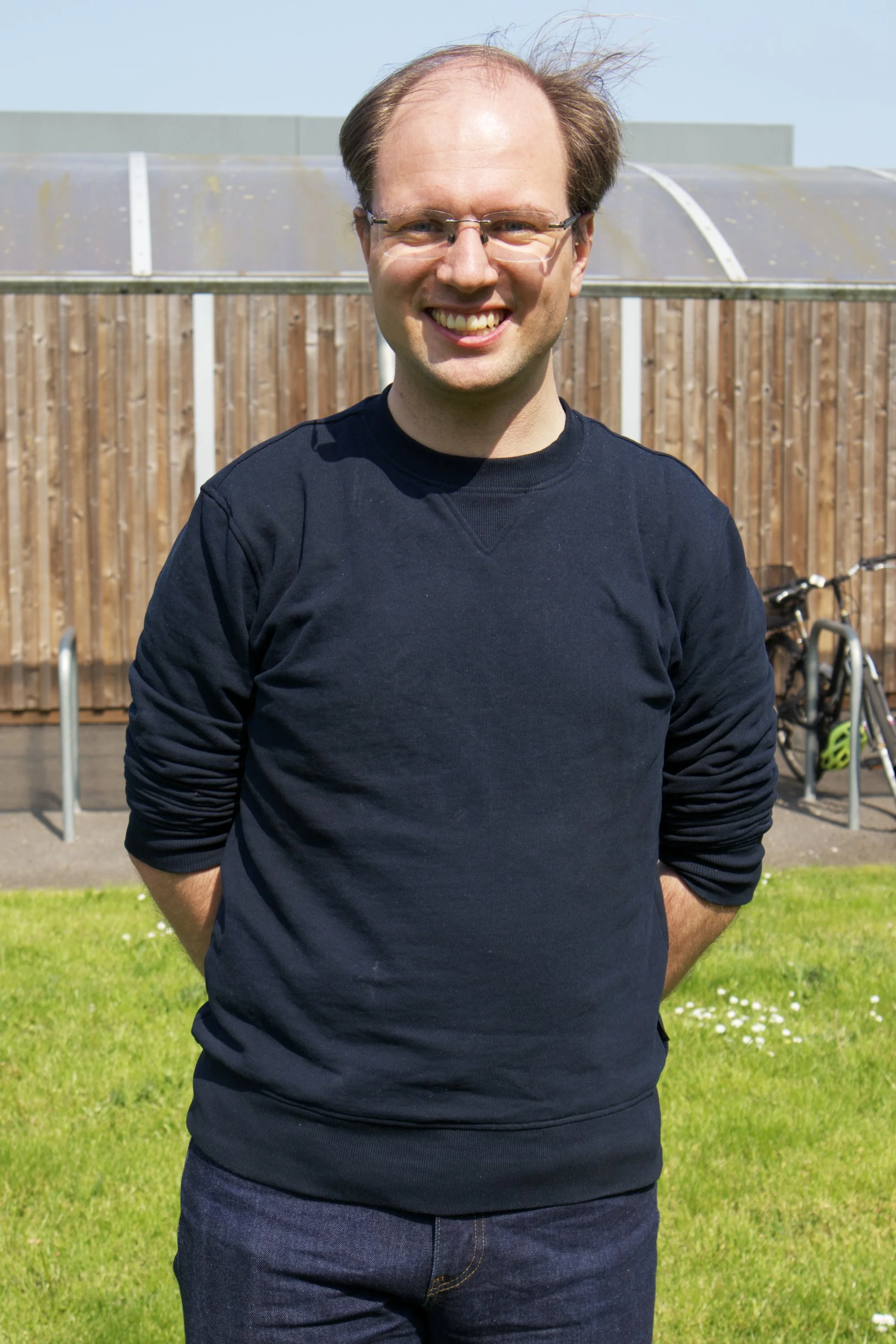Current lab members
-

Miriam Klein-Flügge
Principal Investigator
Miriam’s work focuses on human motivation, decision and learning processes. She is particularly interested in how subcortical and cortical regions of the brain interact. A lot of her time is currently spent setting up studies using transcranial ultrasonic stimulation (TUS) which allows studying the causal contribution of deep brain regions non-invasively for the first time. Miriam is also interested in understanding behavioural and brain changes underlying mood disorders and in exploring the clinical potential of TUS.
-

Caro Nettekoven
Senior Postdoc/Junior PI
Caroline is interested in how the human cerebellum works with the neocortex to support cognition and movement. Her current work combines fMRI precision mapping with transcranial ultrasound stimulation and OPM-MEG to investigate the cerebellum’s causal role in social processes and motor control. She is also interested in how insights from basic neuroscience can inform interventions for cerebellar dysfunction and help refine targets for non-invasive brain stimulation.
-

Bi Rong
Postdoc
Rong is interested in motivation and effort processes. Her current work focuses on how the human brain supports effort learning in a changing environment. To achieve this, she employs 7T fMRI to determine which subcortical regions reflect the effort processes, and then uses transcranial ultrasonic stimulation (TUS) to examine the causal contribution of these deep regions.
-

Zilu Liang
Postdoc
It has been well established that humans are capable of repurposing learned knowledge to facilitate novel applications, i.e. generalization of learned knowledge. Zilu's DPhil project aims to study the theory of compositional generalization and how to better facilitate learning and generalization in humans. She intends to use neural networks as computational models combined with neural imaging techniques to provide a mechanistic account of compositional generalization.
-

Björn Sigurðsson
Postdoc
Björn is a Novo Nordisk Foundation Postdoctoral Fellow at the University of Oxford and the Danish Research Centre for Magnetic Resonance. He is interested in using MR images and machine learning to improve the targeting and dosing of transcranial ultrasonic brain stimulation.
-

Boluwatife Ikwunne
D.Phil. student
Bolu is a Nigerian medical doctor, Rhodes Scholar and DPhil student in the department of Psychiatry. Her research focuses on the impact of adversity on decision-making and mental health in adolescence.
-

Miruna Rascu
D.Phil. student
Miruna is interested in how people adapt their decisions in different social-emotional contexts. She uses transcranial ultrasound stimulation (TUS), brain imaging techniques (fMRI, EEG) and pharmacological interventions to investigate the neural mechanisms of flexible emotional decision making.
-
Tim den Boer
D.Phil. Student
Tim is interested in how non-invasive brain stimulation technologies can map the relationship between brain phenomena and psychological states as well as how these technologies can be used to potentially ameliorate psychiatric symptoms. He explores mainly the effects of the novel non-invasive brain stimulation technology, transcranial ultrasound stimulation (TUS), on both neuroimaging (i.e. fMRI) as well as behavioural measures.
-

James Hong
NIHR Academic Clinical Fellow in Psychiatry
James’s research interests are in improving our understanding of the neural basis of mood disorders and the link between neural circuitry, cognitive function and emotional processing to explain and therapeutically alter mental health symptoms and improve brain health. James completed his undergraduate studies in Neuroscience and Clinical Medicine at University College London. He undertook a Master of Science by research in Psychiatry under the supervision of Professor Andrea Cipriani and Professor Paul Harrison, as well as a Master of Business Administration, at the University of Oxford.
-

Eleonora Carpino
PhD student
Eleonora is a PhD student at the University of Plymouth, co-supervised by Elsa Fouragnan (Brain Stimulation Lab - BRIC - University of Plymouth) and Miriam Klein-Flügge. She is interested in the role of deep brain regions in flexible decision making and reinforcement learning. She uses imaging techniques (fMRI), transcranial ultrasound stimulation (TUS), and computational modelling to causally investigate the relationship between neural circuitry and cognitive function, and contribute to the development of clinical applications of TUS in psychiatric disorders.
-

Naomi Kingston
D.Phil. Student
Naomi is cosupervised by Miriam Klein-Flügge and Matthew Rushworth (Decision and Action lab). Her research employs transcranial ultrasound stimulation (TUS) (a non-invasive brain stimulation technique) with the aim to understand how modulating specific brain regions leads to changes in behaviour. More specifically, Naomi is interested in motivation, the neural mechanisms underlying it, and how it may differ in people with various psychiatric conditions.
-

Channy Zhang
MSci Student
Channy is a Masters student working on a project on with Caroline Nettekoven understanding cerebellar contributions to social cognition; specifically using computational and non-invasive brain stimulation approaches such as TUS, with an interest in how these findings from research can inform future clinical applications.
-

Georgina Summers
MSci Student
Georgina is an Integrated Masters student working with Caroline Nettekoven. Their research uses fMRI and MRS techniques to study how transcranial ultrasound stimulation of the deep cerebellar nuclei affects social behaviour. Georgina is interested in the application of ultrasound stimulation as a clinical intervention for neurodegenerative diseases.
-

Sara Milosevska
Visiting Researcher
Sara investigates how the cerebellum contributes to predictive learning and cognition using OPM-MEG and transcranial ultrasound neuromodulation. She is motivated by bridging basic neuroscience with clinical applications in psychiatry and mental health care.
Lab alumni
-
Maja Friedemann
Postdoc 2023-2025
Senior Scientist at P1vital Products Ltd.
-

Johannes Algermissen
Postdoc 2022-2025
Senior Research Fellow at the Zurich Center for Neuroeconomics (ZNE), 2025
-

Lilian Weber
Postdoc 2022-2025
Professorship at the University of Osnabrück, 2025
-
Sankalp Garud
D.Phil. 2020-2024
Postdoc with Laurel Morris, 2025
-

Daria Jensen
D.Phil. 2018-2022, Postdoc 2022-2023
Postdoc at the Clinic for Cognitive Neurology, University Medical Centre Leipzig & Max Planck Institute for Human Cognitive and Brain Sciences, Leipzig, Germany, 2023



